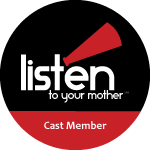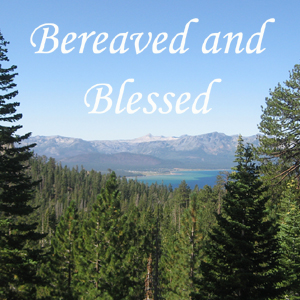We started watching Grey’s Anatomy not long after I came home from the hospital in April 2008. It was already four seasons in and somehow we’d never seen a single episode. My parents had a few of the seasons on DVD and we borrowed them. It was one of the first TV shows Bob and I ever binge watched together.
I was spending a lot of time resting on the couch, recovering from my c-section with no baby at home to care for. After everything we’d been through that year, dealing with Molly’s diagnosis and prognosis, meeting with specialists, and having to make many difficult decisions about our baby girl and me, we really connected with watching this medical drama/soap opera.
Television shows, including Grey’s Anatomy, don’t always get things right, especially when it comes to facts and how things happen in real life. However, I believe that they often try to bring topics to light that people might otherwise not be exposed to, if they aren’t connected with someone who has had a similar experience.
I have been touched many times, over the years, watching Grey’s Anatomy and have shared a few posts here about some of the dialogue and storylines that moved me. Most recently I have been captivated by the story of characters April and Jackson’s pregnancy. As you may know, they received a devastating prenatal diagnosis, which has led to interesting and very real (from my perspective) conversations about what to do and how to cope with their situation.
It brings me back to January 2008, when we found out that our second child, our daughter Molly, had rare and severe congenital heart defects. It reminds me how sad we were to learn about our baby girl’s condition and how hard it was to navigate the rest of our pregnancy, never knowing if we were making the *right* decisions along the way.
We realize now that we make the best decisions we can, with the information we have at the time. And we were blessed and lucky back then to be surround by so many people who loved us and were willing to help us through so much uncertainty.
There are more resources available now, seven years later, than there were when I carried Molly. A couple who receive a prenatal diagnosis that is incompatible with life or life limiting are able to read about and connect with others more easily, who have been in their shoes. No one truly knows what they would do in such a situation until they are living it. And having the opportunity to learn how others have handled similar pregnancies can been so helpful and comforting.
I applaud Sarah Drew (who plays April on the show), Jesse Williams (who plays Jackson), Sarah’s parents (for sharing a similar story with their daughter), and Shonda Rhimes (creator and executive producer of Grey’s Anatomy), for putting this out there. Hopefully it will touch many hearts and minds, as well as show that termination is not the only way out of devastating prenatal diagnoses. There is compassionate care, which is part of the growing perinatal hospice movement.
That is ultimately what my family and I decided to do with our Molly. To cherish the time we had with her during our pregnancy and the little time after she was born and then died. I wouldn’t be the woman, wife, and mother that I am today, if it weren’t for our journey with Molly. I have been able to help so many other families who have found themselves carrying a baby who may not live long after their birth or who have experienced the loss of a child, through writing and sharing my experience here, as well as co-faciliating a perinatal bereavement support group at our local hospital.
If you are reading this and are not familiar with perinatal hospice, please check it out and learn more. As you never know when you or a loved one might be in a position to consider it. I am so grateful for those who introduced us to the concept, which made our journey with Molly more meaningful and our grief more bearable.











{ 0 comments… add one now }